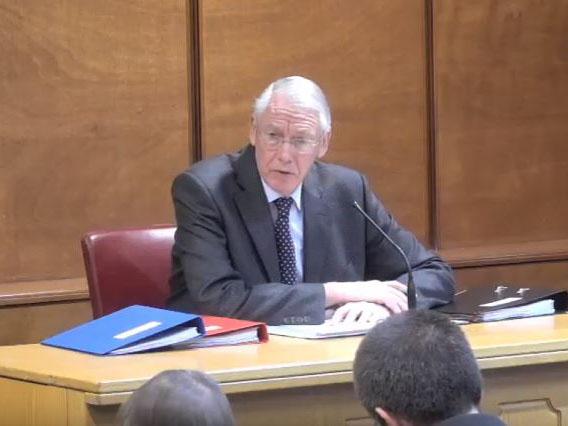What I learned from the Grenfell families about the inquiry this week
One powerful testimony described how the communities were having to teach the authorities how to be ‘human’


A public inquiry aims to get to the truth as a crucial step in delivering justice. No inquiry can achieve that if it doesn’t win the trust of those directly affected by the tragedy under investigation. But after the first hearings of the Grenfell Tower Inquiry this week, there is a real danger that it is already failing to win hearts and minds. Prime Minister Theresa May has to act swiftly to ensure that this is not the case.
Six months since the fire swept all 24 storeys of Grenfell Tower, killing 71 and displacing hundreds, doubt and deep scepticism about the establishment from the survivors is real and to be expected.
At a packed meeting in the House of Commons this week I heard from residents describing their ongoing suffering. Many of the survivors are still living in hotel rooms. They still will be on Christmas morning.
One described traumatised children hiding behind the sofas still in shock. Others worry about the dangerous consequences of ongoing lack of mental health provision for people who suffered what was described as the “torture” of watching friends and neighbours “cremated”, and those who will now be without their families for the first time this Christmas. Tragically, some still have been unable to even bury their loved ones.

Distrust would come from anyone who has suffered what one Grenfell survivor described as the “systemic failure, neglect and self-interest” of local and national governments, both before and after the fire. One powerful testimony described how the communities were having to teach the authorities how to be “human”.
This is the context in which the inquiry must win the trust of the survivors and bereaved families as well as the wider country. The inquiry cannot assume this trust and certainly cannot demand it. And it is clear to me after hearing from affected families and their legal representatives that for many the inquiry hasn’t yet earned it.
At the start of the summer, Theresa May said that no stone would be left unturned and appointed Sir Martin Moore-Bick to head the Grenfell inquiry. Undoubtedly Sir Martin, a former Lord Justice of Appeal, has the necessary legal experience to chair such an inquiry. His legal career spanned nearly five decades before retiring last year.
But survivors are expressing concern that no one person alone has the expertise or understanding to reflect the diverse backgrounds and the broad experiences of the hundreds of people who lived in Grenfell Tower. That too is true.
The Inquiries Act 2005 takes this into account by allowing a panel, and not just an individual, to oversee inquiries. The Prime Minister, as the minister who established this inquiry, has so far chosen not to exercise these powers of appointing a panel. But she still could – and she should.
Bereaved families and survivors say that additional panel members sitting alongside the judge would avert a collapse of confidence in the inquiry’s ability to discover the truth. They handed a petition into Downing Street calling for such a panel. It is a demand that Labour has supported from the outset and will continue to push for.
The Stephen Lawrence Inquiry marked a watershed in uncovering institutional racism. It had a similar type of panel to that being demanded now. Chaired by Sir William Macpherson, a retired judge, it also included the first black archbishop in the Church of England, John Sentamu; a former police chief, Thomas Cook; and a respected anti-racist campaigner, Richard Stone. This panel reflected a wealth of relevant experiences. That diversity was its strength. It forged a legitimacy that must be replicated with the Grenfell inquiry.
The Prime Minister has repeatedly stated that she supports the inquiry getting to the truth, but now refuses to take the steps needed for survivors to have confidence it will. She gives the impression that it is for the judge alone to decide if the panel can be widened. But it is for politicians to take political decisions. We cannot allow the judge to be used as a proxy for frustration at the Government and authorities. The Prime Minister needs to take responsibility and stop passing the buck.
Six months on, the Government must demonstrate that it truly understands that survivors feel the establishment has let them down by being distant and unresponsive. For the bereaved families and survivors to have faith that the inquiry will lead to justice being done, that means appointing a broad Grenfell inquiry panel.
Richard Burgon MP is Labour’s Shadow Secretary of State for Justice
Join our commenting forum
Join thought-provoking conversations, follow other Independent readers and see their replies
Comments
Bookmark popover
Removed from bookmarks